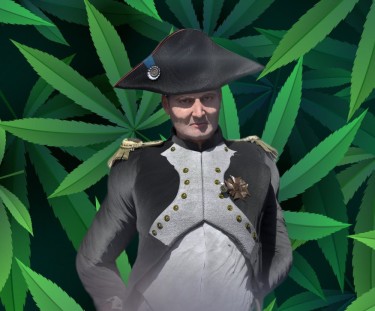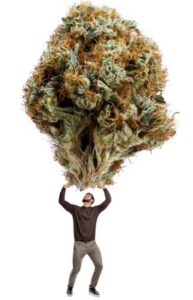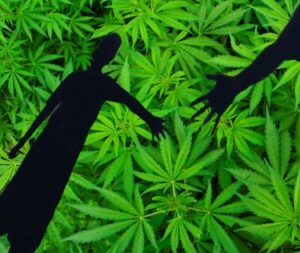
In Ridley Scott's historical masterpiece "Napoleon," featuring Joaquin Phoenix as the titular French conqueror, a fabricated scene unfolds as Napoleon commands his soldiers to aim cannons at the pyramids in the deserts of Egypt.
Despite being called out by historians for historical inaccuracies, this dramatic portrayal is just one aspect of Scott's sensational storytelling, reminiscent of his work in "Gladiator," where Phoenix also played a prominent role.
In 1798, the imperial French army, led by Napoleon Bonaparte, invaded Egypt after seizing the Mediterranean port of Malta. The invasion aimed to disrupt trade routes between India and England while establishing French dominance in the Middle East.
Interestingly, Napoleon's encounter with the Egyptians took an unexpected turn, with his soldiers developing a fondness for hashish, a love that prompted him to ban the substance eventually. This incident, however, was just one peculiar episode during Napoleon's expedition into Asia Minor.
Napoleon faced a unique challenge in Egypt—not from the locals themselves, but from their affinity for hashish. Rather than imposing French customs, Napoleon advocated for embracing local culture.
French forces, including scholars and scientists, established libraries, and research centers, displaying a genuine interest in the diverse traditions and inventions of the Islamic world.
Deprived of their usual French wines and liquors, the soldiers adapted to the local customs, delving into the world of hashish.
They explored the cafés, markets, and lounges where the substance was prevalent, fostering a cultural exchange that contributed to Western Europe's evolving perspective on cannabis. Napoleon's approach to embracing local culture, despite the initial clash with hashish, added a unique dimension to the historical narrative of his campaign in Egypt.
Contrary to the legend that Napoleon banned hashish due to his soldiers being too stoned to fight, this notion is as much a misconception as Ridley Scott's film. In reality, hashish was not outlawed until after the campaign's conclusion, and Napoleon himself didn't enact the ban but by one of his generals.
The primary objective wasn't to safeguard French citizens from the drug's perceived harm but rather to assert control over Egypt and Syria by fostering internal strife among their inhabitants.
As elucidated by Ryan Stoa in his article "A Brief Global History of the War on Cannabis" for The MIT Press Reader, hashish in Egypt was associated with Sufi mystics and viewed negatively by the Sunni elite.
General Jacques-François Menou, tasked by Napoleon to govern Egypt, saw the hashish ban as an opportunity to address a perceived public health issue while also earning the approval of his Sunni elite in-laws.
Cairo's Hash Market Resilience
Issued in 1800, Menou's decree is often regarded as the inaugural drug prohibition law in the modern world. It was an uncompromising mandate, prohibiting the cultivation, sale, and consumption of cannabis altogether.
Egyptians were forbidden from smoking cannabis and from incorporating it into their alcoholic beverages. The mandate warned that those accustomed to consuming this concoction would lose reason and succumb to violent delirium, leading to various excesses.
However, like many other idealistic endeavors pursued by Napoleon's administration, the ban proved ineffective. According to Stoa, hashish continued to be cultivated, traded, and used throughout Egypt, a practice that, if archaeological discoveries are accurate, dates back as far as 3000 BC.
French soldiers not only failed to prevent Egyptians from using hashish but inadvertently introduced the substance to Western Europe, reminiscent of how some American veterans returning from Vietnam influenced cannabis use in their home countries.
Efforts to ban cannabis proved equally futile for the French, both domestically and abroad. In Paris, the Romantic movement forward-thinking writers and artists, rejecting the Enlightenment's rationality in favor of emotion and spirituality, not only tolerated but celebrated the drug that their government sought to eliminate. They proudly dubbed their intellectual circle the "Club des Hachichins," translated as the "Hash-Eaters' Club'' in English.
Despite the government's pressure, Cairo, in Egypt, emerged as one of the world's largest hash markets. Second only to Istanbul in Turkey, Cairo's cannabis industry thrived well into the late 1800s. However, a series of prohibitions, penalties, and crackdowns led its organizers to seek a new operational base. Migrating along the Northern African coast, they eventually settled in Morocco, where they persist.
Hemp's Strategic Importance in Napoleonic Wars
Hash played an unexpected role in the Napoleonic Wars, but the hemp plant was even more crucial. Hemp was capable of being transformed into bags, rope, cordage, sails, and other essential materials for successful warfare. As Napoleon marched his forces toward Moscow, the flourishing trade between England and Russia, Europe's primary hemp producers, became a significant concern.
Like his efforts to regulate hash consumption, Napoleon aimed to control hemp production. In the Peace Treaty of Tilsit, signed in 1807 before France invaded Russia, Napoleon demanded that Russia's Czar, Alexander I, cease business with Great Britain.
No dealings with Britain meant less hemp; less hemp meant a weaker army, increasing the odds of victory. Whether acceptance of these terms by the Czar would have led Napoleon to Moscow remains a speculative question.
Conclusion
The intertwined narratives of cannabis, cultural resistance, and strategic considerations during the Napoleonic era provide a fascinating glimpse into the complexities of historical events.
The Romantic movement's embrace of hashish in Paris, the resilient hash markets of Cairo amidst government pressure, and the strategic importance of hemp in Napoleon's military endeavors collectively paint a nuanced picture of the era's socio-cultural dynamics. Despite attempts to suppress cannabis, its enduring presence and the cultural shifts surrounding it underscore the limitations of top-down prohibitions.
The interplay between cultural movements, governmental policies, and strategic considerations reveals the intricate tapestry of historical forces shaping the trajectory of cannabis use and production. These stories resonate as historical anecdotes and reflections of the broader challenges in governing substances, culture, and commerce, with echoes that reverberate through the annals of time.
SOLDIERS USING CANNABIS, READ ON...
GETTING AN ARMY WAIVER FOR CANNABIS USE, YOU BET!
- SEO Powered Content & PR Distribution. Get Amplified Today.
- PlatoData.Network Vertical Generative Ai. Empower Yourself. Access Here.
- PlatoAiStream. Web3 Intelligence. Knowledge Amplified. Access Here.
- PlatoESG. Carbon, CleanTech, Energy, Environment, Solar, Waste Management. Access Here.
- PlatoHealth. Biotech and Clinical Trials Intelligence. Access Here.
- Source: http://cannabis.net/blog/history/did-napoleon-fail-because-of-freezing-weather-or-his-troops-kept-getting-high-everyday
- :is
- :not
- :where
- 1800
- 3000
- a
- abroad
- acceptance
- According
- accurate
- adapted
- added
- address
- administration
- African
- After
- aim
- aimed
- Alexander
- along
- also
- altogether
- American
- amidst
- among
- an
- and
- approach
- approval
- ARE
- Army
- article
- Artists
- AS
- asia
- aspect
- associated
- At
- Attempts
- back
- bags
- Ban
- banned
- base
- BE
- became
- because
- before
- being
- between
- Beverages
- both
- britain
- broader
- business
- but
- by
- called
- Campaign
- cannabis
- Cannabis Industry
- celebrated
- Centers
- challenge
- challenges
- Circle
- Citizens
- Clash
- club
- Coast
- collectively
- Commerce
- complexities
- Concern
- conclusion
- concoction
- considerations
- consumption
- continued
- contributed
- control
- countries
- crackdowns
- crucial
- cultivation
- cultural
- Culture
- customs
- Dates
- demanded
- Despite
- developing
- DID
- didn
- Dimension
- displaying
- Disrupt
- diverse
- domestically
- Dominance
- dramatic
- drug
- dubbed
- due
- during
- dynamics
- Earning
- East
- echoes
- efforts
- Egypt
- eliminate
- elite
- embrace
- embracing
- emerged
- emotion
- encounter
- endeavors
- enduring
- England
- English
- episode
- equally
- Era
- essential
- established
- establishing
- Ether (ETH)
- Europe
- Even
- events
- eventually
- everyday
- evolving
- exchange
- Explored
- faced
- FAIL
- Failed
- far
- fascinating
- favor
- Featuring
- fight
- Film
- flourishing
- For
- Forces
- forward-thinking
- fostering
- France
- Freezing
- French
- from
- genuine
- getting
- gladiator
- Glimpse
- Global
- governing
- Government
- governmental
- great
- Great Britain
- harm
- hash
- Have
- Health
- Hemp
- High
- him
- himself
- his
- historical
- history
- Home
- How
- However
- HTTPS
- i
- if
- Imperial
- importance
- imposing
- in
- inadvertently
- Inaugural
- incident
- Including
- incorporating
- increasing
- india
- industry
- influenced
- inhabitants
- initial
- intellectual
- interest
- internal
- intertwined
- into
- intricate
- introduced
- invasion
- inventions
- Islamic
- issue
- Istanbul
- IT
- ITS
- jpg
- just
- just one
- kept
- largest
- Late
- Law
- leading
- Led
- less
- libraries
- like
- limitations
- local
- lose
- love
- Malta
- mandate
- many
- Market
- Markets
- masterpiece
- materials
- meant
- Mediterranean
- Middle
- Middle East
- migrating
- Military
- minor
- misconception
- MIT
- Modern
- more
- morocco
- Moscow
- movement
- movements
- much
- NARRATIVE
- narratives
- negatively
- New
- Notion
- objective
- Odds
- of
- often
- on
- ONE
- only
- operational
- Opportunity
- or
- organizers
- Other
- out
- over
- paint
- paris
- peace
- peculiar
- perceived
- perspective
- phoenix
- picture
- plant
- plato
- Plato Data Intelligence
- PlatoData
- played
- policies
- practice
- presence
- press
- pressure
- prevalent
- prevent
- primary
- Producers
- Production
- Prohibition
- prominent
- proudly
- proved
- provide
- public
- public health
- question
- rather
- rationality
- Read
- Reader
- Reality
- reason
- Reflections
- regarded
- Regulate
- remains
- reminiscent
- research
- resilient
- Resistance
- Resonate
- returning
- Reveals
- Role
- routes
- Russia
- Ryan
- s
- sale
- saw
- scene
- Scholars
- scientists
- scott
- Second
- Seek
- Series
- Settled
- shaping
- Shifts
- signed
- significant
- Smoking
- some
- sought
- speculative
- Stories
- storytelling
- Strategic
- substance
- successful
- Surrounding
- Syria
- T
- tapestry
- terms
- than
- that
- The
- the world
- their
- themselves
- These
- they
- this
- those
- Through
- throughout
- time
- to
- tolerated
- too
- took
- toward
- trade
- traded
- trajectory
- transformed
- Turkey
- TURN
- underscore
- Unexpected
- unique
- until
- use
- used
- using
- usual
- various
- Veterans
- victory
- Vietnam
- viewed
- war
- was
- wasn
- Weather
- weed
- WELL
- were
- Western
- Western Europe
- whether
- while
- with
- Work
- world
- would
- writers
- you
- zephyrnet













